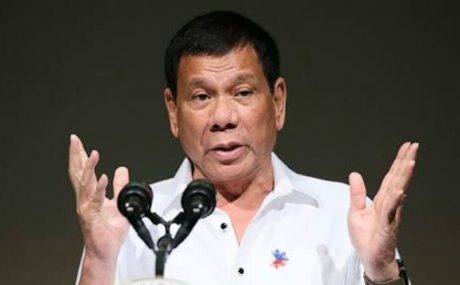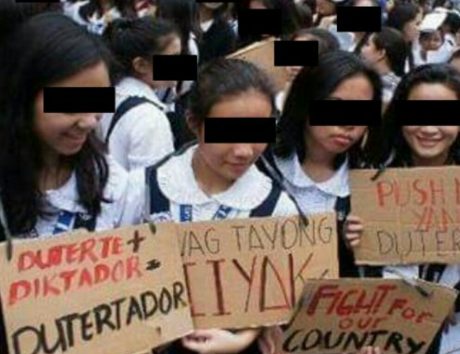
Why do some people, particularly members of the Philippine Liberal Party, call President Rodrigo Duterte a dictator? I have been trying to find people who can substantiate that accusation, but none of his critics could provide anything to back their claim. Liberal Party Senators like Leila De Lima, Risa Hontiveros and Antonio Trillanes keep warning the public about what they think is a looming dictatorship. They keep harping about the “doom and gloom” scenario if Duterte is not stopped, but they simply come across as delusional since their statements are far from reality.
Somebody ought to tell Duterte’s critics what the term “dictator” means. A dictator is someone who has total power over a country. As far as I know, all branches of government in the Philippines are still functioning. Members of Congress can still vote on issues so, therefore, the country is not under a dictatorship. Congress recently exercised their mandate, convened and tackled the issue of Duterte’s request to extend Martial Law in Mindanao. Congress approved the extension of Martial Law until the 31st of December 2017 with an overwhelming 261 yes and just 18 no votes.
The extension of Martial Law is definitely a slap on the face of anti-Martial Law advocates including members of the Liberal Party and their supporters. Their shrill cries are generally ignored by the public anyway, which means the representatives in Congress are in touch with public sentiments. Anti-Martial Law advocates are way out of tune. They only talk about abuses committed in the past, not today. In fact, I’m beginning to think that anti-Martial Law advocates secretly wish the military would commit atrocities and abuse their power against civilians just to prove their point and have something against Duterte.
Anti-Martial Law advocates have become annoying. The public cannot relate to what they are saying because the public understands that the threat of ISIS-affiliated terrorists taking control of the rest of the country is more dangerous than one or two rogue members of the Philippine military abusing their positions. In other words, anti-Martial Law advocates have lost their ability to rationalise. Their arrogance is preventing them from seeing that the country is under threat. They still think that Duterte is simply exaggerating.
Liberal-minded critics still think that peace talks would be more effective in dealing with terrorist groups like Maute. Yeah, right! The Maute Group was founded by Abdullah Maute, son of Moro Islamic Liberation Front official Cayamora Maute. This just proves that despite the millions of pesos former President BS Aquino spent on brokering “peace talks” with the leaders of Moro Islamic Liberation Front, peace in Mindanao remains elusive because breakaway groups continue to pop-up and wreak havoc in the community. These terrorists are not fighting for their religious ideology; they are fighting for power. They don’t want peace because they want to take over the region and quite possibly the entire country.
Seriously, if Duterte didn’t declare Martial Law in Mindanao, his critics would have nothing new to say against him. They can only throw old problems left by BS Aquino government like the traffic at EDSA and public transportation woes. Duterte’s swearing is not even an issue anymore because his supporters don’t have a problem with it and there is nothing his critics can do to change the way he talks.
Duterte’s critics are questioning his popularity ratings and imply that survey firms did not paint a very accurate result. They cannot believe Duterte still enjoys a very high popularity rating – even higher than the previous survey result at 84%. They didn’t have a problem accepting the result when BS Aquino’s popularity rating was high though. They just can’t accept that Duterte still commands respect after a year in office.
Unfortunately for Duterte’s critics, they have nothing to pin him down with since he has not violated any law. His war on drugs is consistent with his mandate as the leader to deal with the drug menace in Philippine society, which the previous government failed to address. The courts have yet to prove that the deaths related to drug operation were the result of “extra-judicial killings”. His war on drugs even seems to be going viral. Indonesian President Joko Widodo has instructed members of his country’s law enforcement agency to shoot drug traffickers, including foreigners. We can only hope that his decision to emulate Duterte would distract US lawmakers who are against Duterte’s policy from focusing on him too much.

Indeed, a year of Duterte has resulted in a more engaged public due to the President’s determination to expose issues that were swept under the rug by the BS Aquino government. Duterte certainly doesn’t pretend everything is peachy in the Philippines. He is the first to admit that the problems in the Philippines are not going to be easy to solve. That is a good start. The first part of solving a problem is exposing it. The solution should present itself after that.
No comments:
Post a Comment